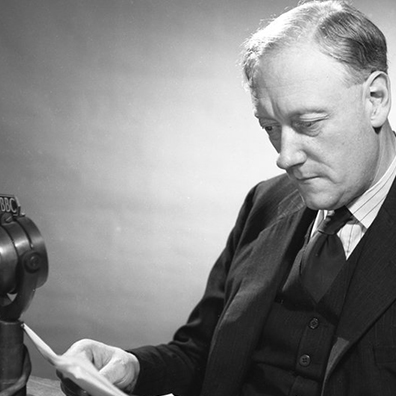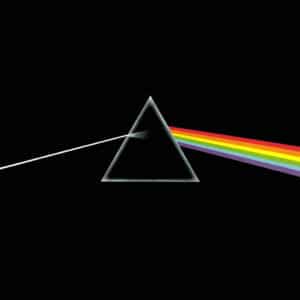
Bertrand Russell: Patron saint of Just Average Inc.
Length: 3,500 words/15 minutes
B ertrand who? A patron saint? Why would Just Average Inc. need a patron saint? Plus: Isn’t “patron saint” a bit rich in irony to describe someone who was both a dyed-in-the wool atheist and womanizer?
Double plus: Doesn’t the Just Average Inc. website pride itself on poking at the pretentious over-achievers of this world? If so, why am I gushing praise for a long since deceased upper-class English high-achieving philosopher?
Ok, I admit that these are all good points and so while I come up with a better description than “patron saint” to classify Russell vis-à-vis Just Average Inc., let’s start from the beginning. If we do I am confident that you will agree as to why I find this intellectual giant of a man both so intriguing and worthy of emulation. Hint: Part of it is his 1935 classic essay entitled In Praise of Idleness. Second hint: The British have a long tradition of producing bumper crops of great thinkers who could also write and speak with brilliance. Doyle, C.S. Lewis, Huxley, etc. are all as enjoyable to read today as they were “back then” and Russell is part of that legacy.

Bertrand Arthur William Russell, later the 3rd Earl Russell, was born two years before Winston Churchill in May 1872. I mention Churchill because Russell outlived him by five years and lived to be 97—dying only in 1970. Russell was in that rare group that had been born into a world that was still lit by fire yet died after having seen men land on the moon—a change so great that it is doubtful to ever be experienced quite that starkly again.
Russell was a lonely child. He was an orphan by the time he was four and then at six he lost one of the paternal grandparents, his grandfather, to whom he had been entrusted. This left sole care to his stern grandmother—perhaps not the best fit for someone of Russell’s temperament but such were the conditions of his youth.
As is the case with many men and women who later find greatness in life, Russell attracted no early special attention for intellectual gifts. To occupy himself he retreated into mathematics and long solitary walks. Thinking was his game and he became quite good at it.
Ah, have you guessed the screenplay already? Lonely teen finds an intellectual foothold and cultivates his spirit of inquiry on walks through nature. His nascent genius starts to bloom. What? Have you seen this movie before?
For it was on these walks that Russell taught himself to question, inquire, and simply doubt and ask why. Yet he was not asking why the way an annoying child does or like that person sitting next to you on an airplane who is merely drilling mindlessly away with questions that serve no purpose other than to be cotton candy to a hungry, but superficial and passing, curiosity.
No, Russell was really thinking about things. He was, with great rigor learning how to think. In other words he was training his mind in the same manner an elite athlete prepares for competition.

Such was the launch of the intellectual rocket. Soon Russell was at Trinity College, Cambridge, reading mathematics and philosophy. After earning his degree it was on to a career as a mathematician, logician, social critic, lecturer, philosopher, conscientious objector, historian, Nobel laureate, a man of letters and essayist, and just about anything else that he brought his powerful mind to bear upon.
Lest one think that he was a mathematician by training who dabbled in other fields and was just a dilettante, I am here to offer a correction. Russell was first-rate in nearly all he did. His contributions to mathematics and philosophy alone would be enough to fill the resumes of two or three accomplished academicians. Add to this his role as the protégé of none other than Ludwig Wittgenstein!
“So?” you might be saying. What does this have to do with me and the average gent or gal plowing the rocky fields of everyday life? Fair question and so at the end of this essay I suggest two very slim works that will help you get a better understanding should you wish of the intellectual legacy this man bequeathed to humanity.
In the meantime, take my word that Russell’s imprint rests over a large scale of thought and social criticism. Think of it this way; we who use smartphones most likely do not understand the quantum physics employed to make them work yet we benefit from their use nonetheless. Just because we do not know about something or understand it does not mean that it does not benefit us. So it is with Russell. Just because we do not have a full grasp of all his academic contributions or that they are not interwoven into the script of Game of Thrones or on the ESPN sports highlights does not mean that they are no longer relevant.
Yet I know that “believe me” is not a good answer and certainly a poor writing technique so let me lay out why he is a figure worthy of emulation. Could it perhaps be his 1903 monumental work Principles of Mathematics and his argument, later known as Russell’s antimony, that finds contradictions in some of the mathematical set theory put forth by George Cantor? No, dear reader, fortunately not although I have listed at the end a portion of Russell’s letter to Cantor in which he expresses his doubts about a point or two…. just in case you ever wondered what seriously smart people used to think about during the day.
Instead there are other reasons why Russell is a life example to us even if his place in the pantheon of great intellectuals is not where we average folk spend most of our free time.
First was his constant drive to doubt, question, and ask why. Not just to ask why, but to drill down until he came to the base understanding of the matter at hand.
Sound easy? Sure it does and the normal human thinks himself an expert at this….which is exactly where the normal human is very wrong. Either out of a hedged politeness in not wishing to sound like that annoying airline seatmate or the petulant child, we most often stop asking why right at what should be the starting point.

Eric Ries in his book The Lean Startup gives a good example of this in his discussion of Taiichi Ohno the father of the Toyota Production System. Ohno developed the idea of The Five Whys. The concept of Five Whys is not to settle on an answer until you have asked why five times—even if you think you already have the answer.
Take the case in which you are trying to figure out why a machine stopped working:
- Why did the machine stop? (There was an overload and a fuse blew)
- Why was there an overload? (The bearing was not sufficiently lubricated)
- Why was it not sufficiently lubricated? (The lubrication pump was not pumping sufficiently)
- Why was it not pumping sufficiently? (The shaft of the pump was worn and rattling)
- Why was the shaft worn out? (The was no strainer attached and metal scrap got in) Ah ha! It was a human problem—they forgot to attach the strainer.
By drilling down with “why” five times you uncovered the root problem. In this example if you had stopped at step one and just replaced the fuse and gone on your way the problem would have occured again. Instead, by “why” number five you solved the problem for good.
A simple example perhaps but Russell was a master of this kind of intellectual pursuit and it allowed him to tackle the variety of serious problems that he did in life. Linking this skill with his iconoclastic bent he was able to turn on its head much of the conventional thinking and accepted beliefs that surrounded him—mostly to the good. For by rocking the boat he yielded wonderful new ways of looking at things.
The second reason that Russell is worthy of emulation is that he welcomed when others could and would prove him wrong. He was neither territorial nor prickly and eagerly tucked in to see where he had erred. His admissions of mistake were not the shillyshally “I am sorry that you feel that way” tripe that we hear so often today, but were instead the beginning of a retreat, retrenchment, an intellectual retooling, and then reengagement. If new facts were at hand he changed his mind—again, a lot easier said than done.
Third, Russell was unpretentious. He did not conquer fields of study merely to collect and show them as so often does a young couple off to climb Mt Kilimanjaro, run with the bulls in Pamplona, or similar things, but because he was curious and interested. Sure he channeled his interests into productive efforts, but curiosity was at the heart of his interest and it kept his thinking fresh and forward looking.
Eric Ries in his book The Lean Startup gives a good example of this in his discussion of Taiichi Ohno the father of the Toyota Production System. Ohno developed the idea of The Five Whys in which he advocated not settling on an answer until you have asked why at least five times—even if you think you have long come to the answer.
Take the case in which you are trying to figure out why a machine stopped working:
- Why did the machine stop? (There was an overload and a fuse blew)
- Why was there an overload? (The bearing was not sufficiently lubricated)
- Why was it not sufficiently lubricated? (The lubrication pump was not pumping sufficiently)
- Why was it not pumping sufficiently? (The shaft of the pump was worn and rattling)
- Why was the shaft worn out? (The was no strainer attached and metal scrap got in) Ah ha! It was a human problem—they forgot to attach the strainer.
By drilling down with “why” five times you can uncover the root problem. In this example you could have simply stopped after the first “why,” replaced the fuse and gone on your way—only to have the problem crop up again. Instead, by “why” number five you solved the problem for good.
A simple example perhaps but Russell was a master of this kind of intellectual pursuit and it allowed him to tackle the variety of serious problems that he did in life. Linking this skill with his iconoclastic bent he was able to turn on its head much of the conventional thinking and accepted beliefs that surrounded him—mostly to the good. For by rocking the boat he yielded wonderful new ways of looking at things.
The second reason that Russell is worthy of emulation is that he welcomed when others could and would prove him wrong. He was neither territorial nor prickly and eagerly tucked in to see where he had erred. His admissions of mistake were not the shillyshally “I am sorry that you feel that way” tripe that we hear so often today, but were instead the beginning of a retreat, retrenchment, an intellectual retooling, and then reengagement. If new facts were at hand he changed his mind—again, a lot easier said than done.
Third, Russell was unpretentious. He did not conquer fields of study merely to collect and show them as so often does a young couple off to climb Mt Kilimanjaro, run with the bulls in Pamplona, or similar things, but because he was curious and interested. Sure he channeled his interests into productive efforts, but curiosity was at the heart of his interest and it kept his thinking fresh and forward looking.
This I find to be a wonderful example and one that can be enjoyed no matter what one’s station in life. Whether one is beavering away to find new meanings in ancient Sanskrit texts or learning how to run electrical wire in a new home addition, there is always some new horizon for those who are curious. Russell shows us how to constantly follow our curiosity to keep life interesting.
The fourth reason that Russell is worthy of our attention is that he was a smooth and interesting writer. From such a towering intellect one would expect a stilted academic prose. Yet apart from his pure academic work, he is still a pure joy to read. As I mentioned earlier, the British have always been top-drawer communicators and Russell did not let the team down. Remarkable isn’t it how the Brits can take up the most mundane topic, watching grass grow for example, and make it into a spellbinding story.
We see this perhaps most of all in his essay In Praise of Idleness. This 1935 gem raises the question if we can actually accomplish more by doing less. I like it because it was one of the first intelligent attacks on the cult of always thinking we can do more and more by working harder and smarter.
Now, dear reader, I can sense your doubt. Most likely you have a mortgage to pay, children to educate, and a stack of bills that roll in each month. Doing less is frankly not an option.
You are also saying that you have seen this idea pop up now and again. In fact, you might have seen one of my favorite books, Tom Hodgkinson’s brilliant How to be Idle. This 1990s addition to the cannon of “idle literature” takes up where Russell left off in skewering the idea of working more and harder just so we can take on more responsibility and, well, work more and harder….
You are no doubt quick to point out that Hodgkinson, like Russell, attended Cambridge and as such stands pretty much at the top of the heap when it comes to the smart set in Britain. True, Hodgkinson’s life, like that of Russell’s has certainly not been one of hardship.
Yet we ignore these men at our peril for what they say is, at the heart of it, serious. Besides being witty, their message helps us reset our priorities. Plus who better to learn from than tweedy British gents rather than today’s fake-smiled high wattage purveyors of self-actualization?
Let’s look at Russell’s definition of the worker/boss dynamic. Something that we of average stock know to be true but might not have considered in quite these words:
First of all, what is work? Work is of two kinds: first, altering the position of matter at or near the earth’s surface relatively to other matter; second, telling other people to do so. The first kind is unpleasant and ill paid; the second is pleasant and highly paid.
The second kind is capable of indefinite extension: There are those who not only give orders, but those who give advice as to what orders should be given. Usually two opposite kinds of advice are given simultaneously by two organized bodies of men; this is called politics. The skill required for this kind of work is not knowledge of the subjects as to which advice is given, but knowledge of the art of persuasive speaking and writing, i.e. of advertising.
With this warm-up Russell goes on, in equally witty and pointed prose to skewer idle landowners—well worth the read indeed.
As with Hodgkinson’s How to be Idle however, Russell describes in the essay the value of what could be called an “active idleness” or of free time that can be used gainfully and enjoyably for creativity.
This is not mere silliness nor was Russell an anti-capitalist crank. If anything, peering across the continent at what was the horrifying experiment with communism in Russia (remember this was the early 1930s he was writing in when the world-wide depression was ravaging economies), he emerged as a champion of open markets and free trade. To quote the author Bradley Trevor Greive, Russell was in many ways a compassionate capitalist.
Instead Russell just does not call for less work so that one may sit around in sloth and laziness, but rather to spend this extra leisure time actively and not passively. Sitting around binge watching all six seasons of our fave dramas on Netflix is not what he had in mind.
He makes the argument that the overwhelming flashes of creativity, both large and small, that our civilization has enjoyed have often come in times of productive leisure or idleness. Sure from perspiration comes inspiration in such eager beavers as Edison with his lightbulb, but letting our minds wander is the seed-box for great ideas. Russell points out that it has been this creative use of time that has given us such things as great advancement in the arts—unarguably something which has lifted us from the drabness of mere existence into a world with beauty and meaning.
Sadly there will always be enough toil to go around. Just when we get rid of one onerous task another pops up to take its place. We no longer need to clean rugs by beating them nor do we need to keep a fire in the oven, but we do have to answer emails, change the oil in the car, and fix the leaking toilet—often all in the same day.
The trick is to try to step away from that toil when we can and instead use our time to think, mull over, consider, and create. Russell warns us not allow our daily toils to becomes yoked to passivity in our free time. Both he and Hodgkinson see dangers, both personal and societal, in that and I think they are right. The good news is that we can fight this tendency no matter how average we are. It is truly an all hands on deck effort.
Ah, but that mortgage you have….and your children that are off at college. You are busy at work and a startup competitor is nipping at your firm’s heels. For you the towering intellect of Bertrand Russell seems far away. You wonder what you should strive for in terms of knowledge. What do you say to your children or other young people?
It is here that I enjoy one last lesson from Russell. Even though many of us are long past “schooling” age, Russell would say that learning never ends. To constantly refresh our lives one needs to stay engaged—in almost any direction and with almost any subject. The key is interest and learning and, however humbly, creating our own conversation in life.
I was reminded of this the other day when I ran across a posting on our airline pilot’s internet forum. A colleague of mine by the name of Christopher Inman lent his thoughts to what he would advise a young person looking ahead. I found them to be very much in the spirit of Russell. Chris writes:
Higher education, any higher education, makes you a better person. I disagree if your premise is that if college doesn’t produce an immediately quantifiable profit to society, it is money wasted.
An institution of any merit will cause its students to expand their mental potential through nothing more than forcing them to concentrate, study, socialize, produce assignments, expand the breadth of their world vision, and if nothing else, learn to learn and to keep learning.
Yeah, we need economists and business managers, and engineers, but what a drab society would we be creating if those and other “valuable” skills were the ONLY ones we promoted. IOW, what is life worth living for if just to be a better “producer” in the economic machine?
The US Military Academy at West Point has an Arts/Philosophy curriculum. I doubt they would agree that the arts is not a valuable course of study.
To decry the arts as a viable curriculum, I would argue that you would need to equally reject the arts themselves. No sculptures, no music, no paintings, no movies.
Continuing education of any sort, especially college, makes you a more discerning, more engaged, cleverer, more resilient, and less gullible member of society. That’s not just valuable, I believe that is invaluable. That is simply what I have observed in life.
Exactly! I am sure that Russell would have been proud.
In the meantime, don’t work too hard and keep being average!
![]()
Footnotes
- Here is Russell’s initial query to Cantor about a discrepancy he found in Cantor’s logic regarding an area of set theory. Please let me know if you can explain it to me!
There is just one point where I have encountered a difficulty. You state (p. 17 [p. 23 above]) that a function too, can act as the indeterminate element. This I formerly believed, but now this view seems doubtful to me because of the following contradiction. Let w be the predicate: to be a predicate that cannot be predicated of itself. Can w be predicated of itself? From each answer its opposite follows. Therefore we must conclude that w is not a predicate. Likewise there is no class (as a totality) of those classes which, each taken as a totality, do not belong to themselves. From this I conclude that under certain circumstances a definable collection [Menge] does not form a totality.
- Two quick works about Russell that you can read each in ninety minutes or so. The first, by Greive, has the Russell’s In Praise of Idleness within it.
a). In Praise of Idleness with an intro, afterword, and notes by Bradley Trevor Greive. St Martin’s Press 2017
b). Bertrand Russell: Philosophy in an Hour by Paul Strathern. Harper Press 2012







0 Comments